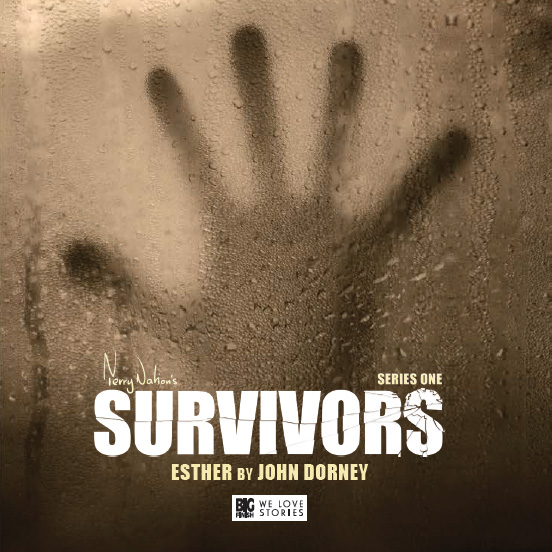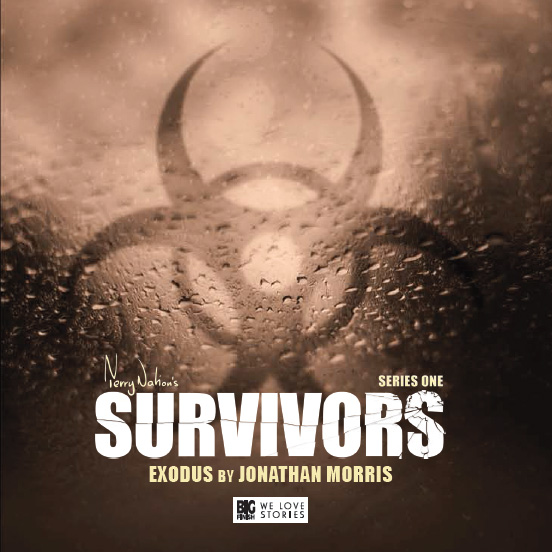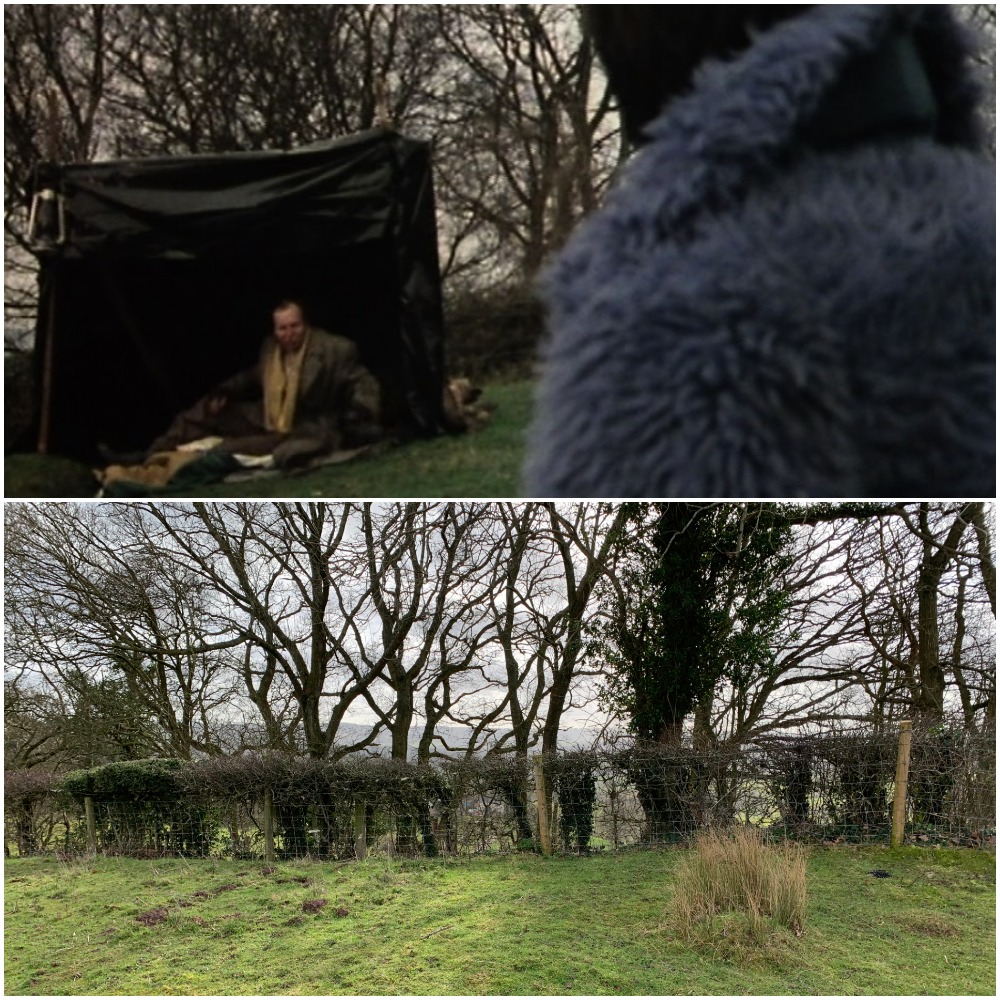
AUTHOR ON SURVIVORS Rich Cross explains the story behind his latest book on the series, a Silver Imprint on the episode Mad Dog for Obverse Books, published on 17 February 2022.
A new publication looking at any aspect of Survivors is always an enticing prospect. What’s the story of the ‘genesis’ of this latest book?
In truth, the origins of what will be my third book about Survivors can be found in the decision of Classic TV Press to cancel all existing commissions on their list. I’d spent many, many hundreds of hours updating and extending the manuscript of The End of the World? The Unofficial and Unauthorised Guide to Survivors, which had originally been published by Telos back in 2005. The intention had been to produce a significantly updated edition of the book, which I would handle the research and writing for, which Classic TV Press would then publish. When that publisher tore up all of their agreements with the authors under contract with them, that put paid to that plan.
Having been so badly let down by Classic TV Press, and frustrated that all of that additional work might never see the light of day, I was looking for other opportunities to publish new work about the series.
Not long after the new edition was cancelled, a writing colleague of mine Tony Jones alerted me to the fact that the publishers Obverse Books were inviting proposals from authors for a new imprint that they had recently set up. So I began pitching to them different approaches to a book on Survivors. We quickly found that we were able to settle on an idea that excited us both, and once we had an agreed outline I began writing.
Can you explain a little about Obverse Books and the Silver Archive imprint?
Yes, of course. Obverse Books publish works on genre television. For many years, they focused in the main on Doctor Who and published many books looking at different serials from across the show’s history. These were produced under the imprint of the Black Archive, and appeared alongside other works focusing on different aspects of the show.
Keen to extend their portfolio into new areas of genre TV, Obverse Books set up the new Silver Archive imprint, with the first books focusing on Sapphire & Steel, Stranger Things and Dark Skies. Survivors is clearly a good fit for that kind of imprint, so the question was - what sort of Survivors book would work as a Silver Archive entry?
The first challenge was selecting which of the 38 episodes of Survivors to focus on
Rich Cross
The Silver Archive style is to focus on either a single episode (or a single story), or at most a single series of a show. So while we did discuss the idea of a ‘short guide’ to the whole three series of Survivors, it became clear that focusing on a single episode would be a better fit with the established Silver Archive standard.
The first challenge for me as an author was selecting which of the 38 episodes of Survivors to focus on. Survivors delivers rich, thoughtful and rewarding drama across all three series of the show, so there were no shortage of candidates. But the Silver Archive approach is to analyse and interpret the material under scrutiny, rather than simply to document the history of its production.
So any episode I chose needed to easily support 30-40k words of interesting and thought-provoking consideration and reflection. Even with that caveat, I ended up with a very long short-list to choose from.
So what made you settle on the third series episode Mad Dog?
It wasn't a simple decision! The third series classic Mad Dog is the episode I’ve already written about more than any other. That meant that, as I whittled down the short-list, it was initially not in the top three. But the more that I thought about it, the more I came to realise how much more there was to say about the drama and meaning of Mad Dog, and as I sketched out what I could write about in relation to the episode, the ideas just kept coming.
I also knew that I wanted the book to have an appeal that might attract readers beyond the ranks of dedicated hardcore Survivors fandom. And I was aware that many genre TV enthusiasts with only the sketchiest memories of most Survivors episodes would immediately recall ‘the one with the rabies’ when prompted. So that higher profile in genre circles was another thing in its favour.
But fundamentally what won it for Mad Dog was that it’s an episode that echoes so much about the times in which it was made and which reveals so much about how the third series of Survivors differs from each of its predecessors.
That meant it was possible to use the prism of Mad Dog to shed light on the culture and society of 1970s Britain, to explore the contemporary significance of the spectre of rabies, to examine how the final series of Survivors was brought to the screen - as well as to tease out the rich thematic strands of Don Shaw’s exemplary script.
I had first to go back to the context in which Terry Nation secured the original commission for the show.
Rich Cross
How did you select which themes and ideas to focus on?
As it turned out, the more challenging task was to work out which themes to leave out! In order to make sense of the drama of Mad Dog, and to understand its status within the wider Survivors canon, I had first to go back to the context in which Terry Nation secured the original commission for the show.
That meant placing Survivors in a political and cultural context, setting out Nation’s vision for the show and revisiting the endemic clashes between the show’s creator and Survivors' producer Terry Dudley: a dysfunctional dynamic that’s key to the evolution of the show.
I then turned to look at other important elements of context, including the prominence of ‘rabies anxiety’, the reflection of the threat of rabies in 1970s British culture, and the development of the character of Charles Vaughan - from his position as a one-off guest character in series one’s Corn Dolly, to his status as the series’ male lead in series three. A development that reaches its apotheosis in the drama of Mad Dog, in which Charles is the star of an episode in which he’s the only series’ regular to appear.
Because of their importance to the story of Mad Dog - both in practical and a symbolic senses - I spend some time examining the role of the national railway network and of the Peak District national park in the decades leading up to the production of Survivors.

With all of that in place, I was able to turn to examining many of the themes that loom large in the narrative of Mad Dog - including Shaw’s exploration of the concepts of morality, community and autonomy and the tension between altruism and self-interest. Running through those discussions is the clash between cynicism and optimism that the encounter between Charles and the misanthrope Richard Fenton brings to life so brilliantly.
What was the research and writing process like?
That side of things was a lot of fun, for the most part. I learned a great deal more about rabies, both as a disease and as a phenomenon that medical and state authorities across the world were struggling to contain in the late 1970s.
I enjoyed revisiting those other contemporary TV dramas which picked up on the threat of rabies, and tracking down those examples of seventies ‘pulp fiction’ which dramatised imagined outbreaks of rabies in Britain.
I enjoyed revisiting those other contemporary TV dramas which picked up on the threat of rabies
Rich Cross
My knowledge of the production process was extended by an illuminating visit to the BBC Written Archives Centre in 2019 - even though the paper trail documenting the production process of Survivors is disappointingly thin. And above all, the process of uncovering new meanings, fresh metaphors and revealing ideas in the writing, production and performances of Mad Dog was an entertaining process in itself.
In contrast to my miserable experience with Classic TV Press, my editor at Obverse Books remained enthusiastic, supportive and encouraging throughout - which was incredibly helpful, especially when the writing process had to advance through the bleak and challenging context of the Covid-19 pandemic.
Was there any material that you had to leave out of the final manuscript?
For sure - and for me that was part of the learning process about what Obverse Books expects from a Silver Archive entry. I’d written a lot more about the reflection of rabies in film and television in earlier decades going back into the thirties, and about how the imagery and ‘idea’ of rabies had surfaced in the first wave of British and Irish punk rock in the closing years of the 1970s (a cultural phenomenon that occurred at the time that Survivors reached UK TV screens).
I’d also included more about how rabies resurfaced in British TV dramas in the years after Survivors - notably in the 1983 BBC serial The Mad Death, starring Survivors’ own Richard Heffer (Jimmy Garland). There was more analysis too of how the destination points of the third series of Survivors can be compared and contrasted with Terry Nation’s original vision for the series - and how Mad Dog fits into that shift in perspective.
In these and other instances, my editor took the wise decision to excise this material in order to keep the focus squarely on Mad Dog itself. It also helped to keep the word count to a sensible and appropriate level!
What can potential readers expect from the book?
For long-standing, knowledgeable fans of Survivors, I’m sure that there will still be a great deal of new, and hopefully insightful, analysis about one of the best regarded episodes in the show’s entire run. And I’m confident that there is a wealth of new reflections which situates the story of Survivors and of Mad Dog in the cultural, political and social times in which it was made.
Even for those able to recite sections of dialogue from the script, and who know each and every location in which the episode was recorded, I’m hopeful that they’ll enjoy discussions about themes and ideas in the drama of Mad Dog that they may not have considered before. That's something that should enhance their appreciation of the work of writer Don Shaw, director Tristan de Vere Cole, and their talented cast and crew, the next time they rewatch the episode.
For long-standing fans of Survivors, there will still be a great deal of new, and hopefully insightful, analysis
Rich Cross
For those genre TV enthusiasts less familiar with the intricacies of Mad Dog, I hope that the book will provide an illuminating insight into the different layers and textures of what's a compelling Survivors story, its evocative setting and its memorable and believable characters.
I hope that the book will encourage those readers to seek out what’s arguably the best 50 minutes of television drama produced by the BBC throughout the whole of the1970s. I also hope that that experience might encourage some of them to track down and appreciate the full three series’ phenomenon of Survivors.
There’s certainly no requirement to be a ‘Survivors expert’ to enjoy the book, and there’s a great deal in the book that should intrigue fans of 1970s genre television, as well as cultural and political historians of the UK in the 1970s.
Is there any prospect of further Silver Archive books revisiting other episodes of Survivors?
Ah, well - that depends. That will ultimately be a decision for Obverse Books, but I certainly wouldn’t rule it out myself. There are still many other entries on the short-list of likely Survivors episodes from which I picked Mad Dog - stories from across all three series of the show. And, of course, there are other writers out there who might decide to pitch a Survivors idea to the editor at Obverse Books.
The likelihood of future installments will depend very much on the reception for this first Survivors Silver Archive. If it’s well received, positively reviewed and sells well, that all increases the chances of future commissions.
The simplest way for any Survivors fan to contribute to that positive momentum is to buy a copy (and then buy other copies for friends and family, if they can afford to) and to help promote the book online and through social media in particular, drawing attention to its publication.
I’m really pleased with the book, which certainly meets the ambitions that I had for the project when I began writing it. Whether you have a preference for consuming texts in print or electronic formats, I’d encourage you to sink your teeth into a copy, and to let me and Obverse Books know what you think.

Rich Cross' new Silver Archive study of Mad Dog is available for purchase (in print and eBook formats) from the publisher Obverse Books' site
The illustrations on this page are details from the cover design by Cody Schell @kodiakschell
Cite this web page
Cross, R. (2021). 'Author of new Silver Imprint book on Mad Dog tells the story,' [online] Survivors: A World Away, 27 December. Available at: https://www.survivors-mad-dog.org.uk/a-world-away/obverse_survivors_mad_dog_author_interview.php. Accessed on: 26 February 2026.
Current style: Harvard
TAGS








